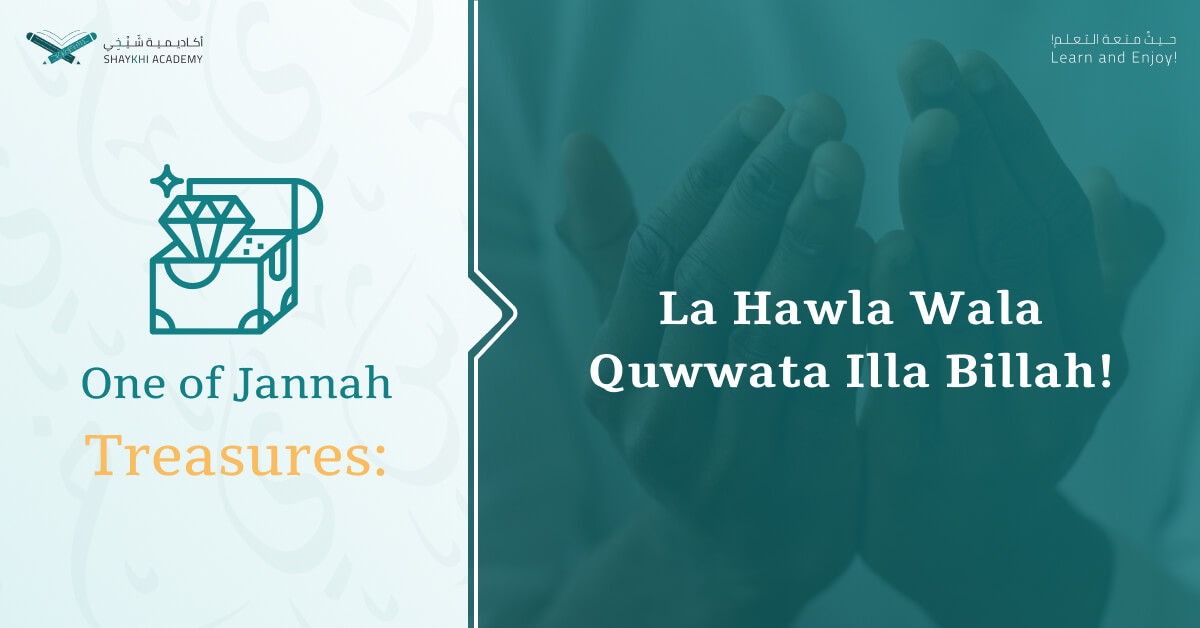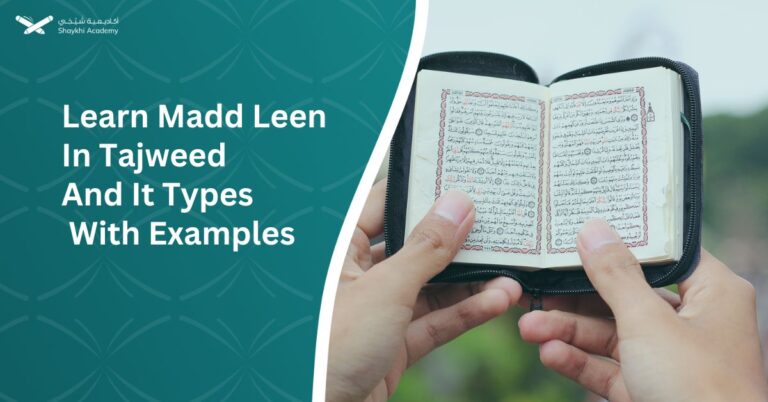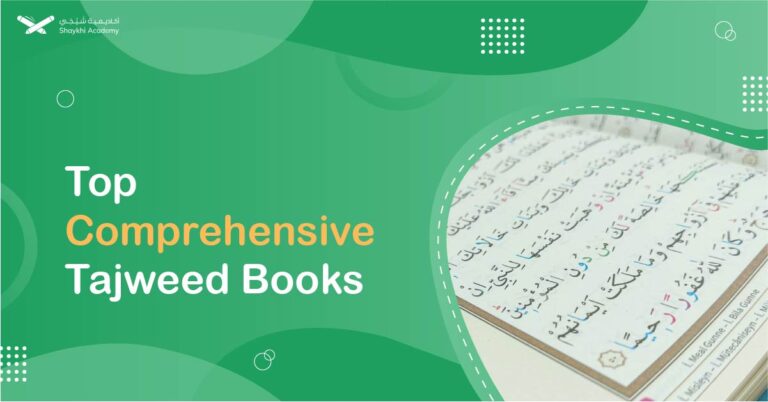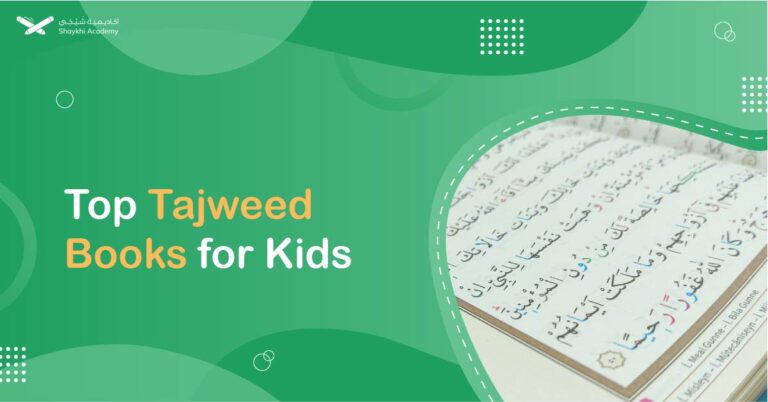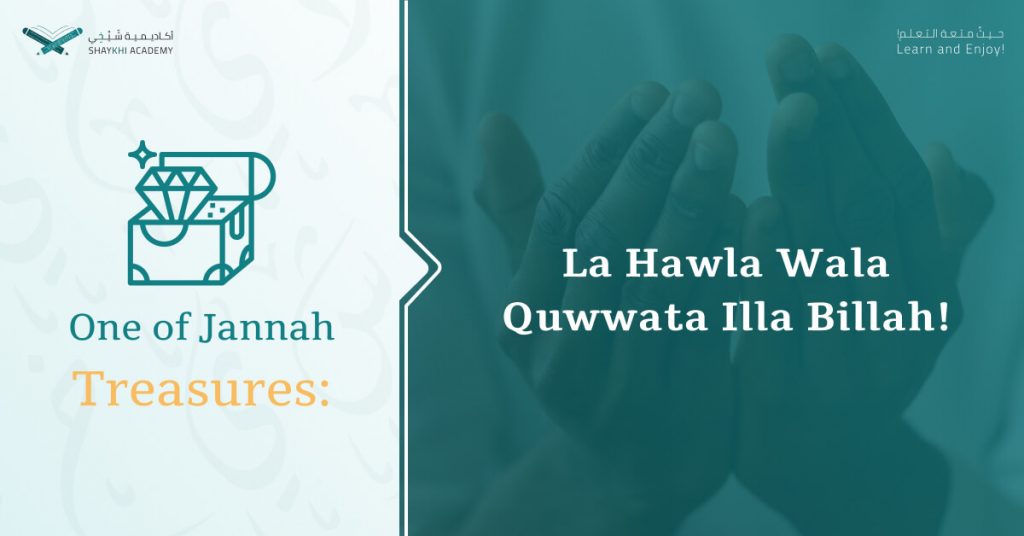
In the name of Allah the Merciful, the Compassionate
Praise be to Allah, Lord of the Worlds, and blessings and peace be upon the Seal of the Prophets and Messengers, our Prophet Muhammad and upon all his family and companions.
Remembrance of Allah has a very high status in the religion, and it is one of the most honorable, best, and easiest of acts of worship. It does not require purity or spending money, but rather moving the tongue and contemplating into the heart.
Among these remembrances that the Prophet, may Allah’s blessings and peace be upon him, used to frequently recite on many occasions and command his companions to do so is Hawqala ( La hawla wala quwwata illa billah). This statement conveys profound meanings that instill faith into the heart, reinforce certitude in Allah, and strengthen the bond of submission of the Muslims with their Lord, the Mighty and Sublime.
Abu Hurayrah narrated that the Prophet ( peace and blessings be upon him) said: Be frequent in saying La hawla wala quwwata illa billah. For verily, it is a treasure from the treasures of Paradise.
And Abu Dhar also reported: (My close friend( the Holy Prophet, may peace and blessings be upon him) has instructed me to do seven things: to love the needy and acquaint them, to consider those who are inferior to me, and not to consider those who are superior to me, to maintain the bonds of kinship even if they severe their ties with me, not to beg anything from anyone, to say the truth even if it is harsh, not to fear the blame of any blamer for the sake of Allah, and to be frequent on saying La hawla wala quwwata illa billah as it a treasure from under the Throne), narrated by Ahmad.
The Companions, may Allah be pleased with them, used to enjoin each other to say La hawla wala quwwata illa billah. Amer bin Saad, may Allah be pleased with him, narrated that he said: I met Abu Ayyub al-Ansari, may Allah be pleased with him, and he said: Should I not order you to do what the Messenger of Allah commanded me to do? To be frequent on saying there is no might or power except with God, for it is among the treasures of Paradise.) Classed as hasan by Ibn Hajar Al-Asqalani in Al-Matalib Al-A’aliah (4/43).
What Does Lā ḥawla wa lā quwwata illā billāh Mean?
La hawla wala quwwata illa billah means that there is no transformation from one condition to another, and that the servant does not have the power to do any matter except with Allah’s help and assistance.
Abdullah bin Abbas, may Allah be pleased with them both, said: “There is no power for us to worship Allah except by Allah, and we have no power to abandon a sin except by Allah.” Narrated by Ibn Abi Hatim.
There is no power in repelling evil, and there is no power in achieving good except by Allah. To give up strength and power except in Allah, there is no movement or power except by the will of Allah. This expresses complete reliance on Allah whom He Almighty loves is also a meaning of La hawla wala quwwata illa billah, It is also an acknowledgment of your poverty and your need for your Lord in all your circumstances.
La hawla wala quwwata illa billah conveys surrender, entrustment, and self-denial of power and strength except In Allah, and it is tantamount to acknowledging one’s helplessness and seeking Allah’s help. Didn’t you see that we were commanded to say it when we hear the muezzin say: come to prayer, come to success? Why? Because we ask Allah to help us against ourselves and our devil to go to prayer.
Abu Hurayrah narrated that the Prophet, may peace and blessings be upon him, said: Should I not tell you a word from under the Throne which was part of the treasure of paradise, it is: “There is no might and no power except in Allah.” Allah the Almighty says, “My servant has resigned and submitted himself to me.”
Misuses of La hawla wala quwwata illa billah
Therefore, (La hawla wala quwwata illa billah i.e., there is no power and no strength except with Allah) is not a phrase said when faced with disaster (such as the phrase, “Innā Lillāhi wa innā ilayhi rajiʿūn i.e., Verily to Allah we belong and unto Him is our return.”).
Rather, it is to be said with the aim of seeking the help of Allah. In addition, some people say it out of fear, not patience, and trust in Allah, and this is a mistake.
Don’t you see that when someone hears his friend saying La hawla wala quwwata illa billah, he asks him concernedly: Are you okay? Is there anything wrong? What is the calamity that has occurred? This is because he used to hear it from those who suffer from calamities; For this reason, people did not often say La hawla wala quwwata illa billah in their public lives, because they did not understand its meaning and significance, but rather used it to express calamities.
Most people, if a calamity inflicts them or hear about a calamity, do not say Innā Lillāhi wa innā ilayhi rajiʿūn i.e., Verily to Allah we belong and unto Him is our return.”), but rather hasten to say: “La hawla wala quwwata illa billah i.e., there is no power and no strength except with Allah), and this is wrong. The use of the Hawqalah is only in general matters, a mere general zikr, as in seeking the help of Allah Almighty to perform worship, such as prayer when We hear “come to prayer, come to success”.
What Are The Benefits of Repeating La hawla wala quwwata illa billah?
There are several benefits and rewards for those who frequent the Hawqalah, among these rewards are the following:
It Is One of Paradise’s Beauties
It was narrated that Hazim bin Harmalah said: “I passed by the Prophet (saas) and he said to me: ‘O Hazim, say often: “La hawla wala quwwata illa billah (there is no power and no strength except with Allah),” for it is one of the treasures of Paradise.'”
The treasure: As Al-Nawawi, may Allah have mercy on him, said: It is a reward that is stored in Paradise, and it is a precious reward just as the treasure is the most precious of your money.
You’ll Be Rewarded A Tree In Paradise Every Time You Say It
It was narrated from Abu Ayyoub al-Ansari that: the Prophet Muhammad, May Allah’s blessings and peace be upon him, said: I met Abraham on the night I was taken up to heaven, and he said, “Who is with you Jibreel” This is Muhammad, Jibreel replied.
Abraham, May Allah’s blessings and peace be upon him, said: (O Muhammad, order your nation to make a frequent practice of planting Paradise, for that paradise has good soil and wide land). What are the plants of Paradise, the Prophet asked. (La hawla wala quwwata illa billah (there is no power and no strength except with Allah).
It Is One of The Gates of Paradise
On the authority of Muadh bin Jabal, may Allah be pleased with him, that the Prophet Muhammad, may Allah’s prayers and peace be upon him, said: (Shall I not direct you to one of the gates of Paradise)? He said: What is it? He said:(La hawla wala quwwata illa billah (there is no power and no strength except with Allah).
It Forgives Your Sins
There are some dhikr with the (La hawla wala quwwata illa billah (there is no power and no strength except with Allah) in it. If a person says them, his sins will be forgiven.
Abdullah bin Amr narrated that :
the Messenger of Allah (ﷺ) said: “there is not anyone upon the earth who says: ‘None has the right to be worshipped but Allah, and Allah is the Greatest, and there is no might nor power except by Allah, (Lā ilāha illallāh, wa Allāhu akbar, wa La hawla wala quwwata illa billah ) except that his sins shall be pardoned, even if they were like the foam of the sea.”
On the authority of Abu Hurairah, may Allah be pleased with him, in a chain of transmission traceable to the Prophet, may Allah bless him and grant him peace, (Whoever says: There is no god but Allah, and Allah is great, there is no god but Allah alone, there is no god but Allah, and he has no partner, there is no god but Allah, His is the dominion and His is the praise, there is no god but Allah, And there is no might or power except with Allah)
counting them five on his fingers, then he said: Whoever says them in a day, or in a night, or in a month, and then dies on that day, or that night, or that month, his sin will be forgiven) Narrated by An-Nasa’i.
When Is Hawqala Preferred to Be Said?
For the great value of saying (there is no might and no power except with Allah ) and the abundance of its reward, the Prophet, may Allah’s prayers and peace be upon him, urged us to increase its saying on several occasions, either alone or combined with other dhikr. The most important of which are:
During The Adhan And Iqamah of A Prayer
In a long hadith, the Prophet, may Allah’s prayers and peace be upon him, commanded us to say as the muezzin says, except for the (come to prayer, come to success). Instead we shall say: (La hawla wala quwwata illa billah i.e., there is no power and no strength except with Allah). Reflect how should the Muslim says it four times during the Adhan and twice during the iqaamah, that equates to thirty times in one day!!
It is a request for help in worship to Allah , and that is why Imam Malik did not give fatwas until he said: There is no might or power except with Allah (Sharh al-Sunnah by al-Baghawi 1/301).
Sufyan al-Thawri said: I entered upon Jaafar bin Muhammad while he was in his mosque, and he said: What brought you, O Sufyan? He said: I said: to seek knowledge. He said: “O Sufyan, if a blessing appears on you, have taqwa in Allah, and if your sustenance slows down, ask for Allah’s forgiveness, and if a matter baffels you, then say: La hawla wala quwwata illa billah i.e., there is no power and no strength except with Allah)Then he said, O Sufyan: Three and what valuable three. Narrated by al-Bayhaqi in Shu’ab al-Iman.
After Every Prayer
It has been reported that ‘Abdullah bin Zubair (May Allah be pleased with them) used to recite after Taslim at the conclusion of every Salat (prayer):
“La ilaha illallahu wahdahu la sharika lahu, lahul- mulku, wa lahul-hamdu, wa Huwa ‘ala kulli shai’in Qadir. La hawla wa la quwwata illa billah. La ilaha illallahu, wa la na’budu illa iyyahu, Lahun-ni’matu, wa lahul-fadlu, wa lahuth-thana’ul-hasan. La ilaha ilallahu, mukhlisina, lahud-dina, wa lau karihal-kafirun (there is no true god except Allah; He is One. To Him belongs the dominion and to Him is all praise, and He is Powerful over all things.
There is no power and might except with (the help of) Allah. There is no God but Allah and we worship none except Him, to Him belongs the bounty and to Him belongs the grace, and to Him belongs all excellent praise; there is no deity but Allah. We reserve our devotion exclusively for Him though the disbelievers may detest it).” Ibn Az-Zubair said: The Messenger of Allah (ﷺ) used to celebrate Allah’s Greatness in those terms after every Salat (prayer).
Upon Leaving The House
Anas (May Allah be pleased with him) reported: Messenger of Allah (ﷺ) said, “Whoever says (upon leaving his house): ‘Bismillah, tawakkaltu ‘alallah, wa la hawla wa la quwwata illa billah [I begin with the Name of Allah; I trust in Allah; there is no altering of conditions but by the Power of Allah],’ it will be said to him: ‘You are guided, defended and protected.’ The devil will go far away from him”.
Saying Hawqala when leaving the house is a protection from evils as you giving up your power and strength and seek Allah’s help.
When Sleeping
That is why the Prophet , may Allah’s prayers and peace be upon him, urged us to say it when we go to our bed so that our sins may be forgiven, as Abu Huraira, may Allah be pleased with him, narrated that the Prophet, may Allah’s prayers and peace be upon him, said: if anyone says when going to bed: There is no god but Allah alone, who has no partner, his is the dominion and His is the praise and He is Able to do all things.
There is no power and no strength except with Allah,Glorified is Allah,and The praise is for Allah, and There is none worthy of worship but Allah, and Allah is the Most Great, Allah atones for their sins even if they were like sea foam.
It Can Be Read Instead of Al-Fatiha (For the one who does not know the Quran)
It was narrated that Ibn Abi Awfa said:
“A man came to the Prophet (ﷺ) and said: ‘I cannot learn anything of the Quran; teach me something that I can say instead of reciting the Quran.’ He said: ‘Say: SubhanAllah, wal-hamdulilah, wa la illaha ill-Allah, wa Allahu Akbar, wa la hawla wa la quwwata illa Billahil-aliy al-azim (Glory be to Allah, praise be to Allah, there is none worthy of worship except Allah, Allah is Most Great, and there is no power and no strength except with Allah the Exalted and Magnificent ).'”
Stories From The Sunnah About La hawla wa la quwwata illa billah
Hawqalah is a Dua that includes glorifying Allah and entrusting the affairs with him. There’s a story of a desert Arab came to Allah’s Messenger (ﷺ) and said, “Teach me a word that I can say. ” The Prophet told him to say: There is none worthy of worship but Allah, Who has no partner, Allah is the Great, the Most Great, and praise is to Allah in abundance, glory is to Allah, Lord of the worlds. There is no power and no might but by Allah the Mighty, the Wise.
He said, “That is for my Lord, but what about me?” The Prophet (ﷺ) told him to say: O Allah forgive me, and have mercy on me and guide me, and provide for me.
Sa’d bin Abu Waqqas (May Allah be pleased with him) reported:
The Messenger of Allah (ﷺ) and I went to see a woman. She had date- stones or pebbles in front of her, and she was counting and reciting Tasbih. [‘Subhan-Allah’ (Allah is free from imperfection)]. He said, “Shall I not inform you of what is easier or better than this for you?”
You should say: ‘Subhan-Allahi ‘adada ma khalaqa fis-sama’, wa subhan-Allahi ‘adada ma khalaqa fil-ardi, wa subhan-Allahi ‘adada ma baina dhalika, wa subhan-Allahi ‘adada ma Huwa Khaliqun, wallahu Akbaru mithla dhalika, wal-hamdu lillahi mithla dhalika, wa la ilaha illallahu mithla dhalika, wa la hawla wa la quwwata illa billahi mithla dhalika
meaning: (Subhan-Allah, equal to the number of what He created in the heaven; and Subhan-Allah, equal to the number of His creatures in the earth; and Subhan-Allah, equal to the number in between them; and Subhan-Allah equal to the number of those He will create).’
Then say: ‘Allahu Akbar’ (Allah is Greatest) in the same way. Then say: ‘Al-hamdu lillah’ (praise be to Allah) in the same way. Then say: ‘La ilaha illallah’ (there is no true god except Allah) in the same way. Then say: ‘La hawla wa la quwwata illa billah’ (there is no change of a condition nor power except by Allah) in the same manner.”
We have learned its meaning and significance, the misuses of it and some of its virtues, so I do not think that you will abandon it after that; In response to the prophet’s saying, may Allah’s prayers and peace be upon him (be frequent on saying La hawla wala quwwata illa billah, for it is one of the treasures of Paradise). May Allah make me and you among those who listen to the saying and follow the best of it, and may Allah’s prayers and peace be upon our master Muhammad and his family and companions.
Recources:
الإكثار من قول (لا حول ولا قوة إلا بالله)
The translator:
Shaykh Abdullah Solaiman
FAQ
(Q&A of Lā ḥawla wa lā quwwata illā billāh)
How many times Hawqala is preferred to be said?

It wasn’t mentioned a specific number of times, but its good to repeat it as much as you can for the reason that it has many benefits.
Why is it called Hawqala?
Hawqala is a word taken from the sentence La hawla wala quwata illa billah.
